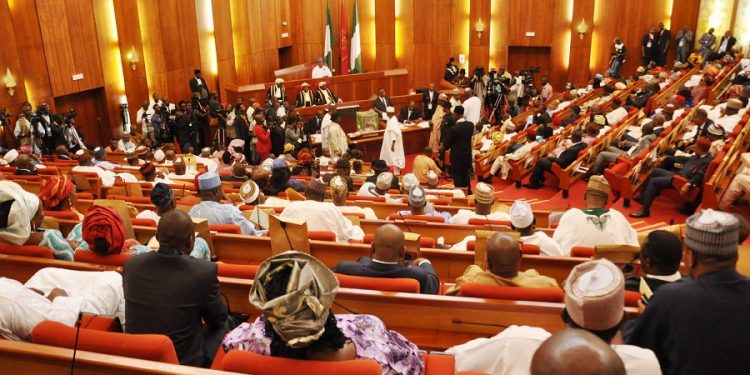The Nigerian Senate has given its nod to the 2024-2026 Medium Term Expenditure Framework and Fiscal Strategy Paper (MTEF/FSP). The approval, which came after the presentation of the Senate Joint Committee’s report led by Senator Sani Musa, marks a crucial step in shaping the nation’s fiscal policies for the next three years.
The Senate’s scrutiny involved a detailed examination of estimates put forth by various federal ministries, departments, and agencies outlined in the fiscal document. During the plenary session, the red chamber endorsed a robust fiscal plan for the 2024 fiscal year. This includes a borrowing plan of N7.8 trillion, a budget deficit of N9 trillion, and an overall federal government expenditure of N26 trillion.
President of the Senate, Godswill Akpabio, presided over the deliberations, which saw an overwhelming show of support for the fiscal document during a voice vote.
Key parameters approved by the Senate include an oil price benchmark of $73 per barrel of crude oil, a daily production target of 1.78 million barrels, and sustained measures as outlined in the MTEF/FSP documents. Additionally, the upper chamber endorsed a special intervention (recurrent) of N200 billion, a special intervention (capital) of N7 billion, and an exchange rate of N700/$.
A notable resolution emerged from the Senate’s decision to ban the importation of all items that are locally produced. This move is expected to stimulate domestic industries and promote economic self-sufficiency.
The joint committee’s report underscored concerns about arbitrary, frivolous, and extra-budgetary expenditure by several revenue-generating agencies of the federal government. The Senate’s approval of the MTEF/FSP demonstrates its commitment to fiscal discipline, transparency, and sustainable economic growth over the medium term. This development sets the stage for the effective implementation of strategic fiscal policies to steer the nation towards economic resilience and development.















